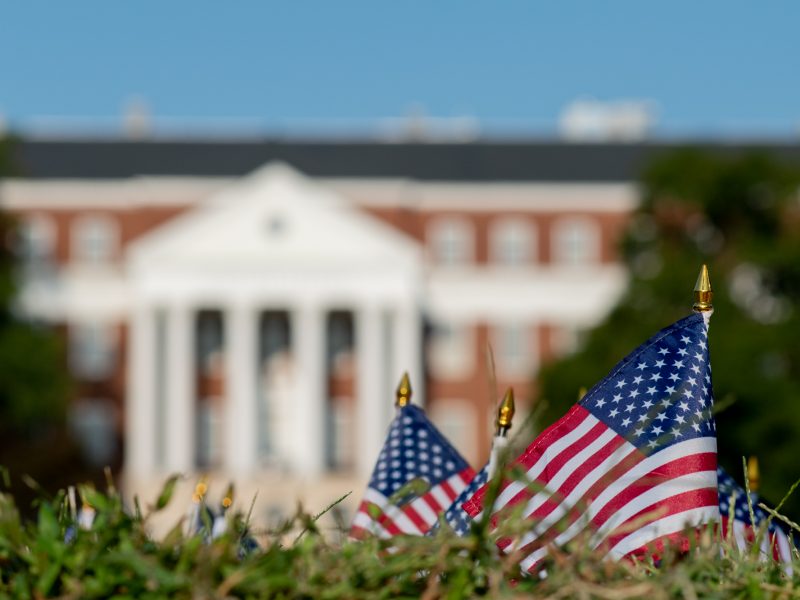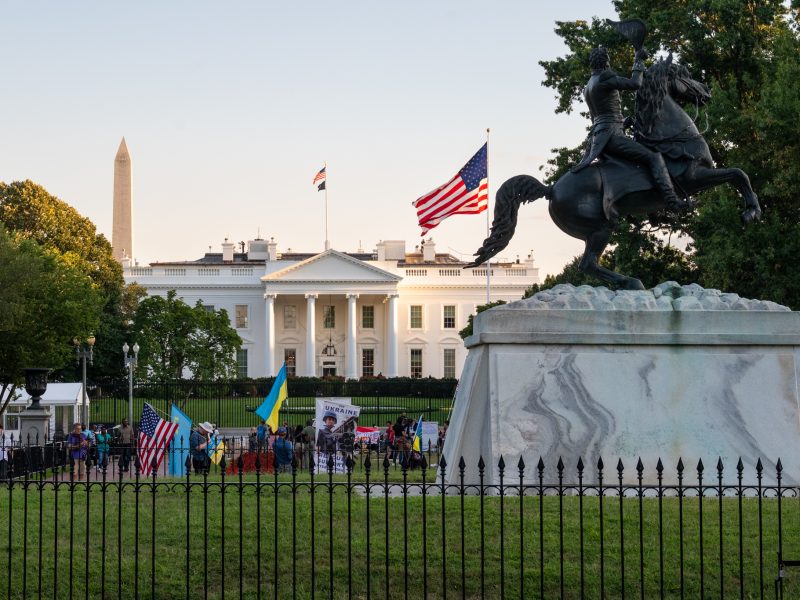Views expressed in opinion columns are the author’s own.
A continued abuse of power from immigration enforcement has led me to question the role of sanctuary cities, sensitive locations and what powers states, counties and cities have to counteract unlawful seizures.
Amid uncertain times in the U.S. where authoritarian policies have become the norm rather than the exception, we must lean on our state and local governments for protection. Part of this requires empowering sanctuary cities to not cooperate with federal immigration enforcement agencies, but also actively advocate for them to not allow U.S. Immigration and Customs Enforcement on protected properties. ICE has no role or place at the University of Maryland, a home of higher education and learning.
In January, the Department of Homeland Security issued a directive that allows ICE to raid “sensitive areas.” The Maryland General Assembly later passed the Maryland Values Act, which prevents federal immigration enforcement agents from “sensitive locations” such as public schools, libraries and healthcare facilities.
The actions come after Elsy Noemi Berrios, a Maryland mother, was arrested by ICE agents in March. During the arrest, officers shattered Berrios’ car window and she was forcibly removed from her car. The arrest is part of a larger pattern of action aimed at suspected undocumented immigrants, with Berrios’ lawyers saying the homeland security department did not provide a detention order, only allegations that Berrios is affiliated with MS-13.
These allegations mirror President Donald Trump administration’s wrongful deportation of Maryland father Kilmar Armando Abrego Garcia. The Trump administration said the deportation was an “administrative error,” despite Abrego Garcia’s protected status.
While the recent passing of the Maryland Values Act should offer protections, it will be up to this university to uphold them on school properties. This standard has existed since 2011, and the homeland security department has listed public schools, including public universities, as sensitive locations.
But until the state attorney general provides guidance on enforcement of this, behaviors from ICE around the state of Maryland are unlikely to change. The University System of Maryland must pursue all universities under their care to be sanctuary campuses.
College Park, which was named a “sanctuary jurisdiction” by the homeland security department in May, previously said it would follow Prince George’s County sanctuary policies to support undocumented immigrants, but now the University of Maryland Police Department “does not have the legal authority to prevent U.S. Immigration and Customs Enforcement from conducting operations within the City of College Park.”
Given the recent political climate around the Washington D.C., Maryland, Virginia area, where even Washington, D.C.’s, sanctuary status is up for debate, rather than leaving protections up to cities and counties, the University System of Maryland needs to work on implementing protections through system-wide policies.
The movement for sanctuary campuses is occurring around the country, with American University setting an example. American University’s student government requested a referendum to declare the university a sanctuary campus.
American University is not the first to call for this change. People around the country have circulated active petitions requesting change, including ones advocating for this university and the University of Maryland, Baltimore County to provide support for undocumented students, but they have yet to be acknowledged by the university system.
This university needs to adopt policies that support protections against undue process, illegal search and seizures, and protections from ICE. The first step in this process is declaring all university system schools as sanctuary campuses. The first step for students is to continue actively requesting change and coming together in the face of adversity.
Autumn Perkey is a government and politics doctoral student. She can be reached at perkey@umd.edu.



